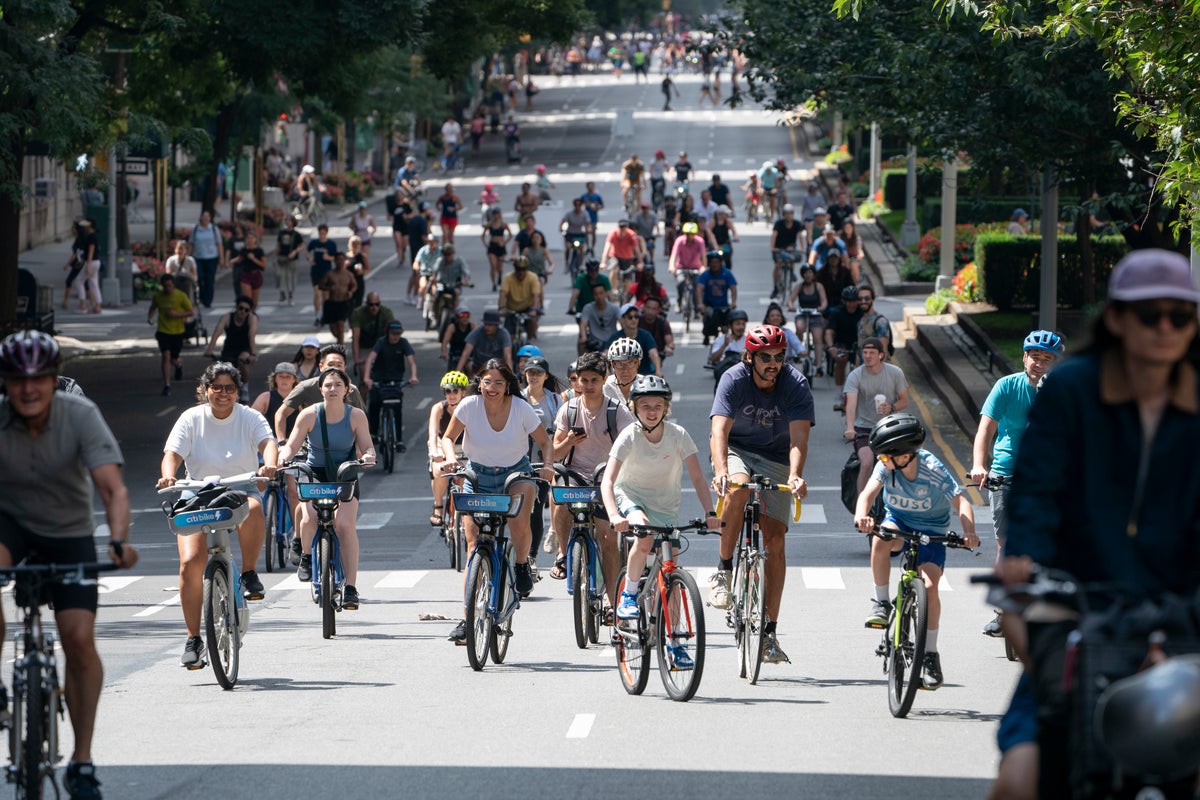Letter from the editors of Scientific American: We Need to Make Cities Less Car-Dependent. “We can design or redesign streets to make people drive more slowly or to discourage driving altogether. We can invest in better public transit…”



Advertise here with Carbon Ads
This site is made possible by member support. 💞
Big thanks to Arcustech for hosting the site and offering amazing tech support.
When you buy through links on kottke.org, I may earn an affiliate commission. Thanks for supporting the site!
kottke.org. home of fine hypertext products since 1998.





Comments 2
New member here so for a first comment I suppose I should make a fairly general one incited by this post (or rather what it links to):
Could be an age thing (it's an age thing) -- being around the block enough times to be dizzy -- but I've passed my limits about articles about what should be done that neglect to explain in real world terms how to get from the described problem to the proposed solution(s).
That is, not to go all lib and stuff, but our political system -- by which I mean "liberal" democracies generally, are corrupted to the point of impotence when it comes to doing what needs to be done. Monied interests have a nearly absolute veto power. Our political system in the US makes it arguably easier for a minority to dominate than a majority.
Examples (I'm grossly simplifying) include Trump's Covid response, the Trump tax cuts of 2019, US foreign policy/national security since WWII.
I should qualify that: the first step in any solution's obvious: vote the corrupted elected leaders out of power.
Long way to say, I'm tuning out of these kind of pieces if they don't offer anything practical.
Bonus: what made it possible for personal vehicles to make city hellholes has been I play for about a century or so.
Not arguing—I agree that monied interests and minority rule are major problems in the US and that they need to be voted out, but I do think these articles are helpful and practical, just in a less obvious way.
In my recent experience, older, driving, property owners complain that bike lanes ruin the aesthetics of the neighborhood, speed up drivers, and lower property values, when research has shown time and time again that thinner lanes (plus obstacles and curves) slow drivers, and that bike lanes, walkability, and reduced pollution increase property values and make streets more vibrant and engaging among neighbors. Given that these angry loud voices are likely in power or friends with those in power, it's disheartening and infuriating to lose bike lanes, bulb outs, and raised or boldly painted crosswalks that people, including kids, use safely every day.
IMO it matters that this is from SciAm editors, to be on record in support. And I personally find these articles helpful because the history, data, and success stories are mental, emotional, and informational fuel to keep pushing for improvement in the face of uncivil neighbors.
Also, given that statements need to be repeated over and over for people to believe them or to think they're popular opinion, these simple repetitive headlines are surprisingly practical. The challenge is getting them out of the usual echo chambers and into entrenched communities.
Hello! In order to comment or fave, you need to be a current kottke.org member. If you'd like to sign up for a membership to support the site and join the conversation, you can explore your options here.
Existing members can sign in here. If you're a former member, you can renew your membership.
Note: If you are a member and tried to log in, it didn't work, and now you're stuck in a neverending login loop of death, try disabling any ad blockers or extensions that you have installed on your browser...sometimes they can interfere with the Memberful links. Still having trouble? Email me!
In order to comment or fave, you need to be a current kottke.org member. Check out your options for renewal.
This is the name that'll be displayed next to comments you make on kottke.org; your email will not be displayed publicly. I'd encourage you to use your real name (or at least your first name and last initial) but you can also pick something that you go by when you participate in communities online. Choose something durable and reasonably unique (not "Me" or "anon"). Please don't change this often. No impersonation.
Note: I'm letting folks change their display names because the membership service that kottke.org uses collects full names and I thought some people might not want their names displayed publicly here. If it gets abused, I might disable this feature.
If you feel like this comment goes against the grain of the community guidelines or is otherwise inappropriate, please let me know and I will take a look at it.
Hello! In order to leave a comment, you need to be a current kottke.org member. If you'd like to sign up for a membership to support the site and join the conversation, you can explore your options here.
Existing members can sign in here. If you're a former member, you can renew your membership.
Note: If you are a member and tried to log in, it didn't work, and now you're stuck in a neverending login loop of death, try disabling any ad blockers or extensions that you have installed on your browser...sometimes they can interfere with the Memberful links. Still having trouble? Email me!